Two Republican members of Congress have called out President Donald Trump after he took to Twitter with a bizarre claim about tariffs and how they operate.
"Tariffs are the greatest!" the president claimed, before saying that leveling tariffs are a "simple" repercussion of negotiating trade deals that would impact the United States "unfairly."
But the president's understanding of economics is lacking, as Representarive Justin Amash (R-MI) points out.
"Umm... no. Tariffs are taxes. American consumers are the ones who get hit with U.S.-imposed tariffs," Amash wrote. He added that how other countries approach economics "does not justify our own economic incompetence."
House Speaker Paul Ryan (R-WI) also rebuffed the president's claim and reiterated Amash's remarks, saying, "I've made it pretty clear I don't think tariffs are the right answer. I don't support tariffs. I think tariffs are taxes, and I think there are better tools that we can use."
Both Amash and Ryan are correct: Tariffs are taxes on imports or exports between sovereign states. In the United States, many tariffs are paid at the time of entry into the country via a U.S. customs broker or agent, and that doesn't necessarily account for duties and fees that may apply to the import.
Trump's tweet comes as the U.S. and China spar tensely after Trump announced an additional $200 billion in tariffs on Chinese goods, in an attempt to get businesses to use less Chinese-produced goods and opt for goods made in the U.S. or by allies with whom the country has less precarious trade relationships.
These tariffs don't benefit the U.S. or, as Trump puts it, "the piggy bank that's being robbed." The tariffs actually result in production cost increases for businesses that use imported Chinese products. These increases happen because businesses either must use more expensive domestic parts or pay more for the finished products.
Trump's tariffs also focus on intermediary goods, or parts, which many small-to-medium-sized U.S. businesses use to make finished products. Consequently, the increased cost of parts place businesses into positions where they must either raise prices on their prices and pass the cost on to the consumer, reduce their workforce, or shutter U.S. operations and move overseas to avoid tariffs.
The tariffs, economic experts have said, have only hurt the American economy and its consumers, and an announcement earlier today from the Trump administration appears to lend their views credence.
Earlier today, The Associated Press reported that the Trump administration will announce upward of $12 billion in emergency aid for the agriculture industry and the farmers––many of whom voted for the president––who've been impacted the hardest.
The move opened up the president to criticism immediately.
Agriculture groups and lawmakers contend that the administration's tariffs have prompted U.S. trading partners to retaliate by imposing tariffs of their own on products like pork and soybeans.
Trump has levied tariffs of 25 percent on imported steel and 10 percent on aluminum and has already levied tariffs of 25 percent on $50 billion worth of Chinese imports, of which $34 billion in tariffs have gone into effect and another 16 percent will go into effect in short order.
According to Farmers for Free Trade, a bipartisan coalition working to oppose trade policies that hurt farmers, the best relief for the president’s trade war would be ending the trade war."
The group's executive director, Brian Kuehl, called for the trade war to end, saying, "Farmers need contracts, not compensation, so they can create stability and plan for the future. This proposed action would only be a short-term attempt at masking the long-term damage caused by tariffs."
The president insists, however, that his critics are wrong.
"They're doing a number on us. Just stick with us. Don't believe the crap that you see from these people," he said, before attacking the media––once again––as the bearer of "fake news."
The president added that news articles critical of his tariffs are commissioned by "the lobbyists and the people they hire," though he did not offer his evidence to support his assertions.







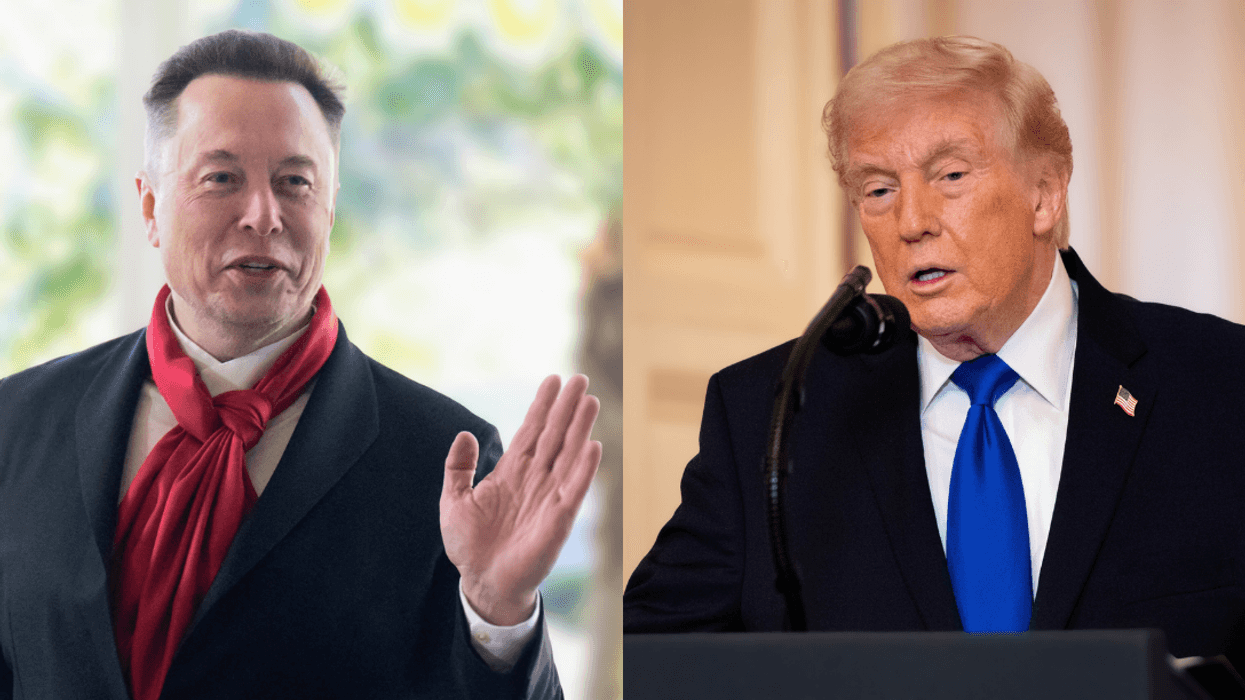
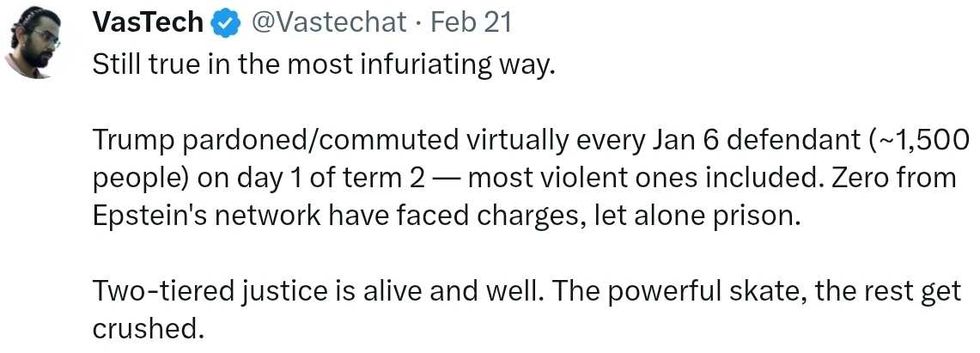 reply to @elonmusk/X
reply to @elonmusk/X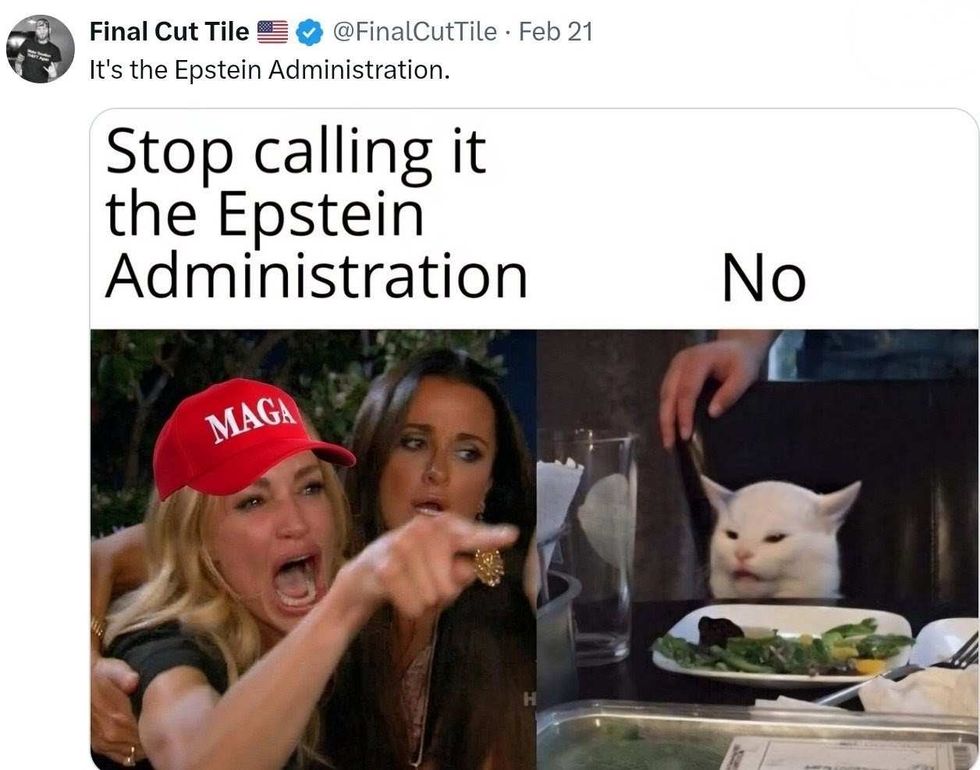 reply to @elonmusk/X
reply to @elonmusk/X reply to @elonmusk/X
reply to @elonmusk/X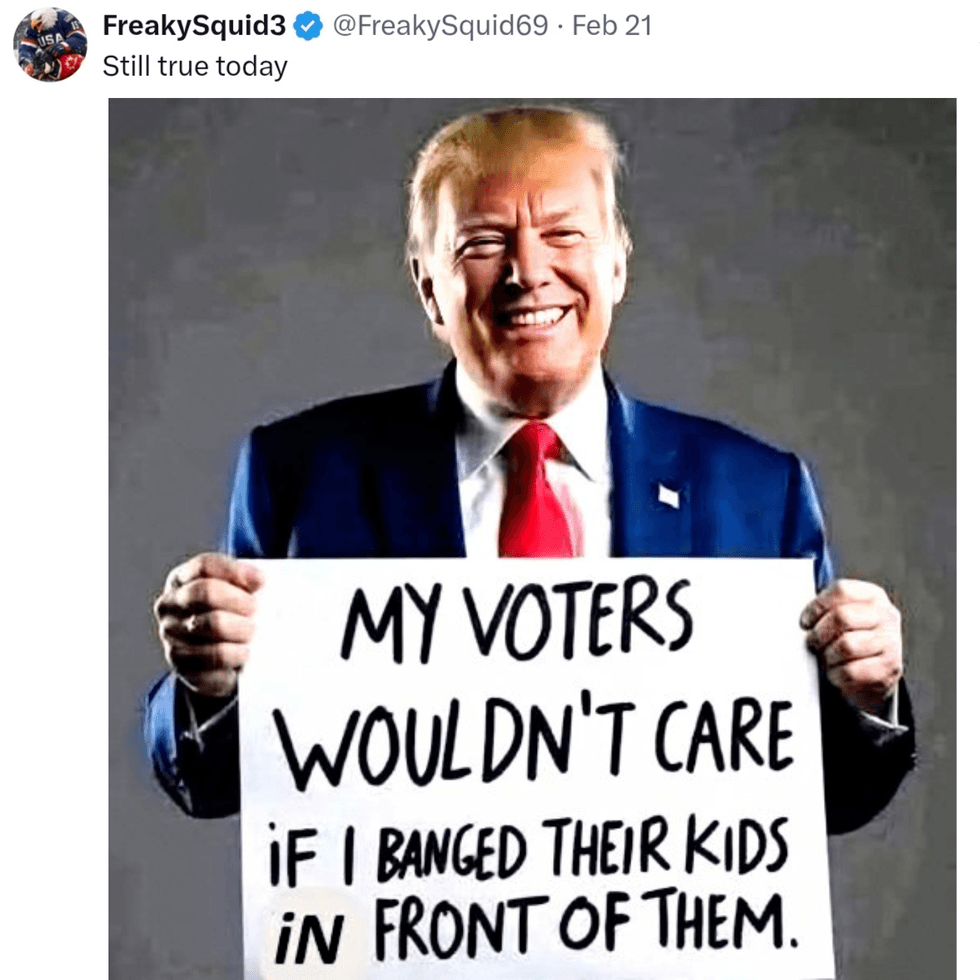 reply to @elonmusk/X
reply to @elonmusk/X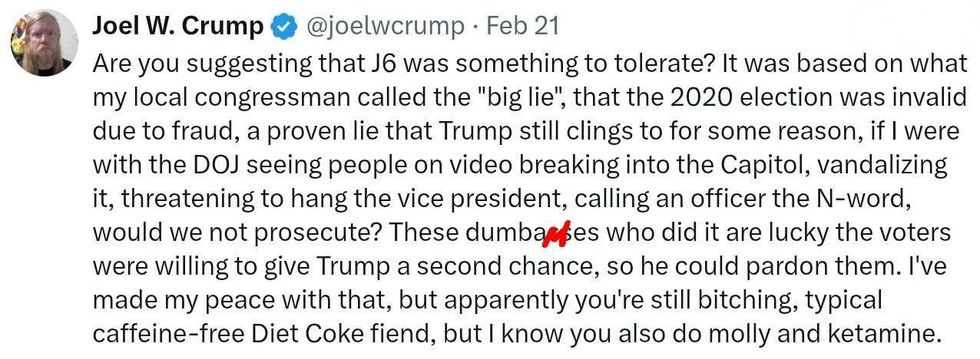 reply to @elonmusk/X
reply to @elonmusk/X reply to @elonmusk/X
reply to @elonmusk/X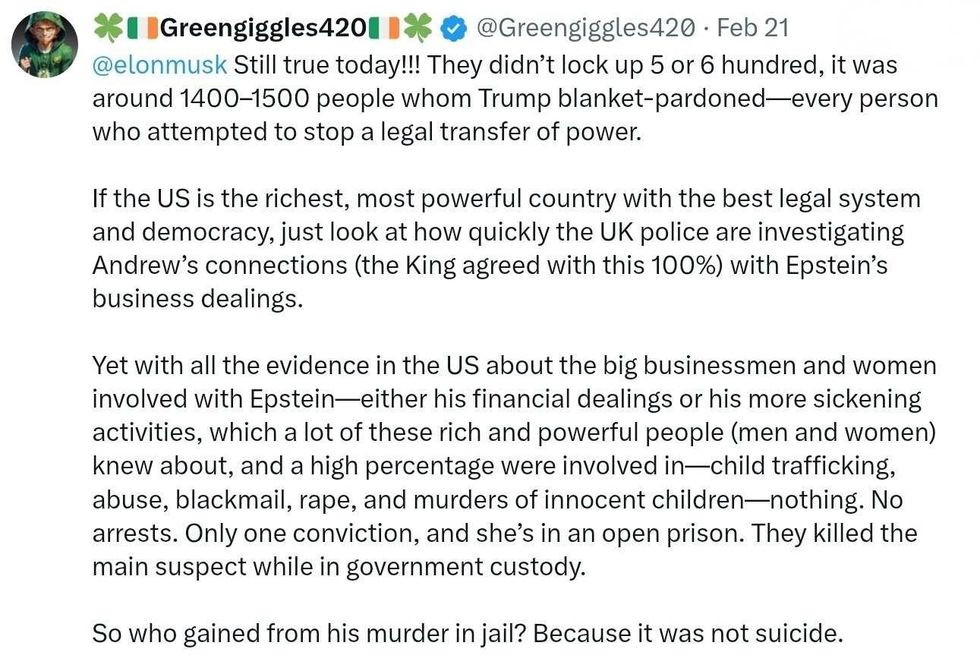 reply to @elonmusk/X
reply to @elonmusk/X




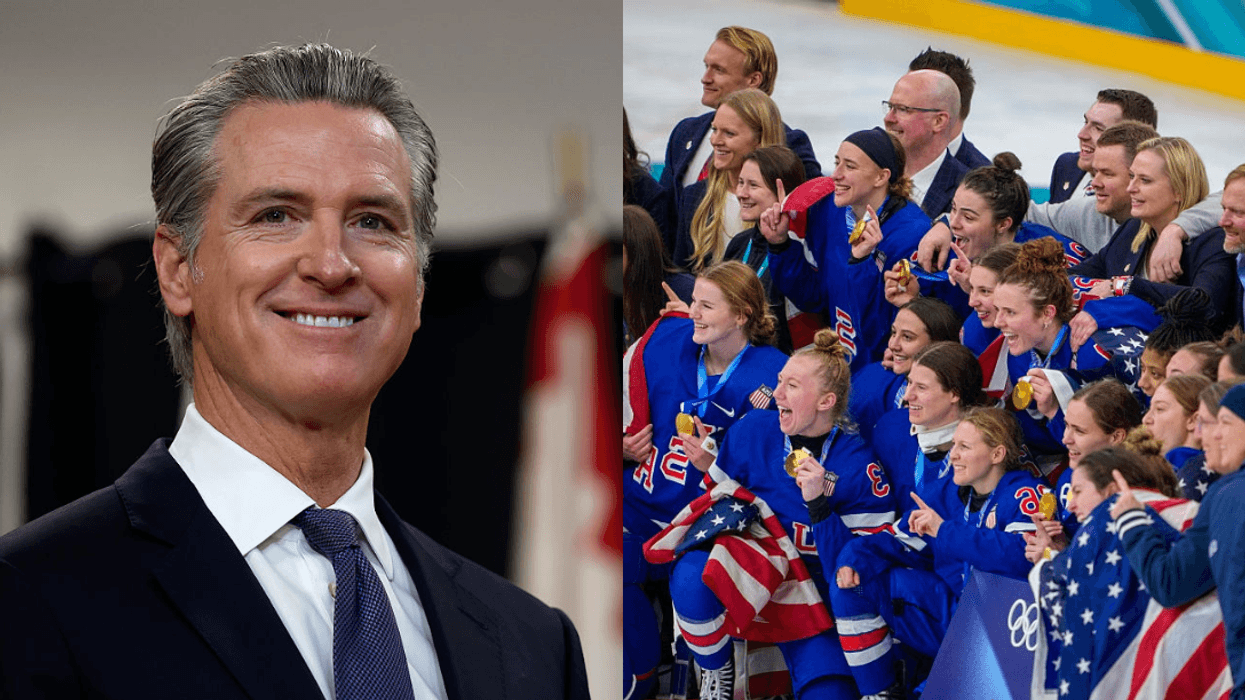
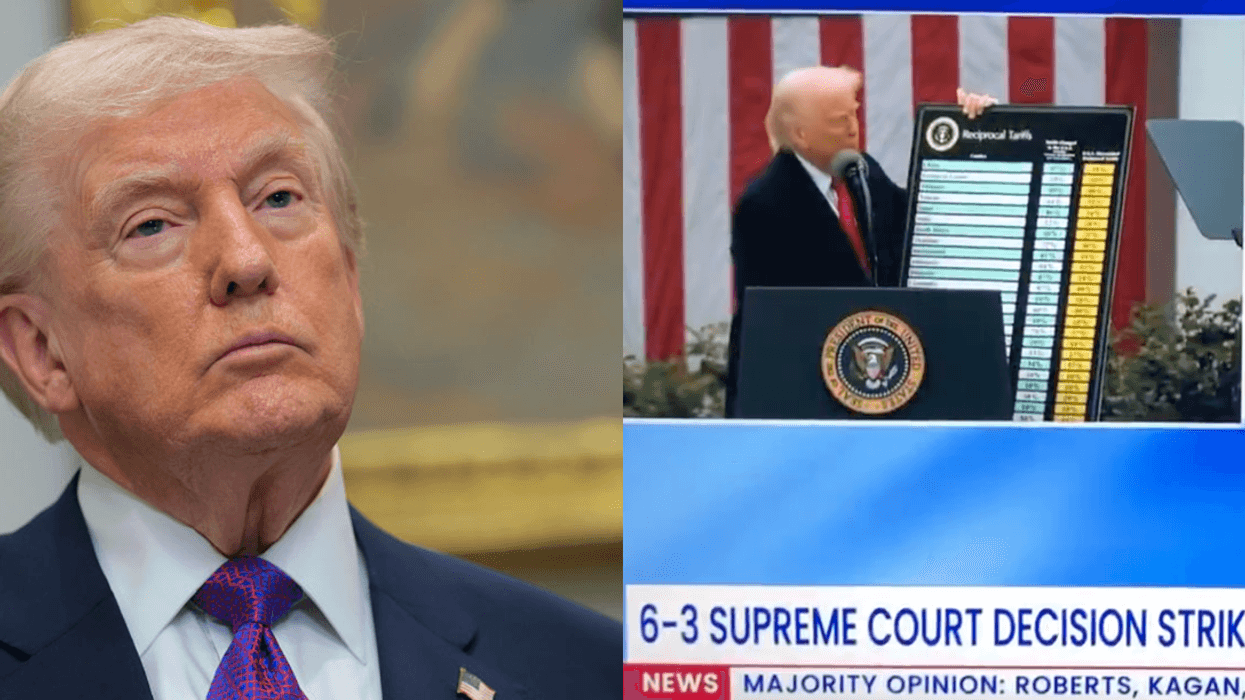
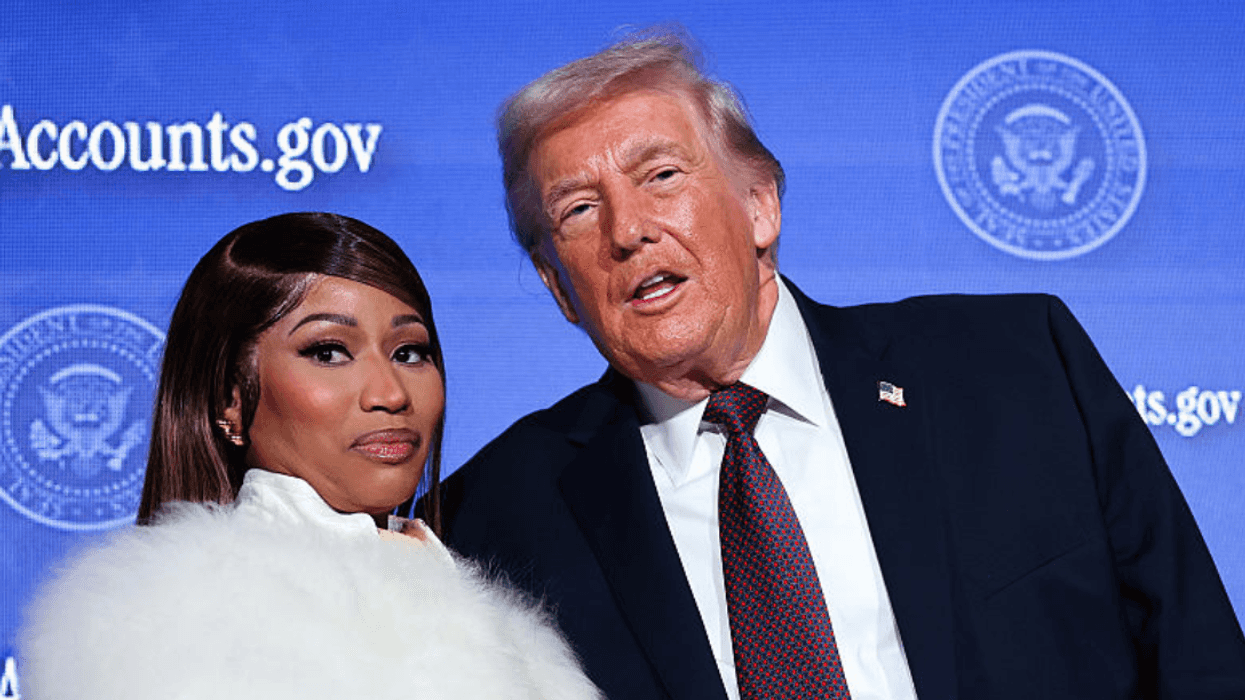
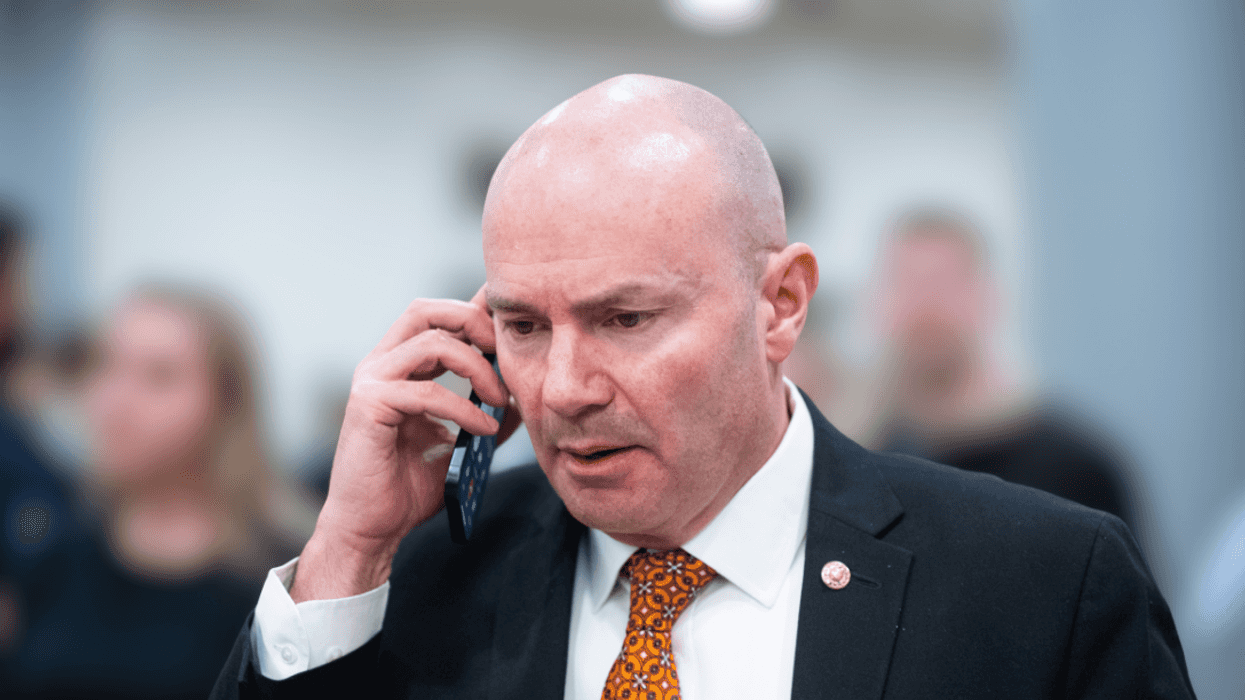
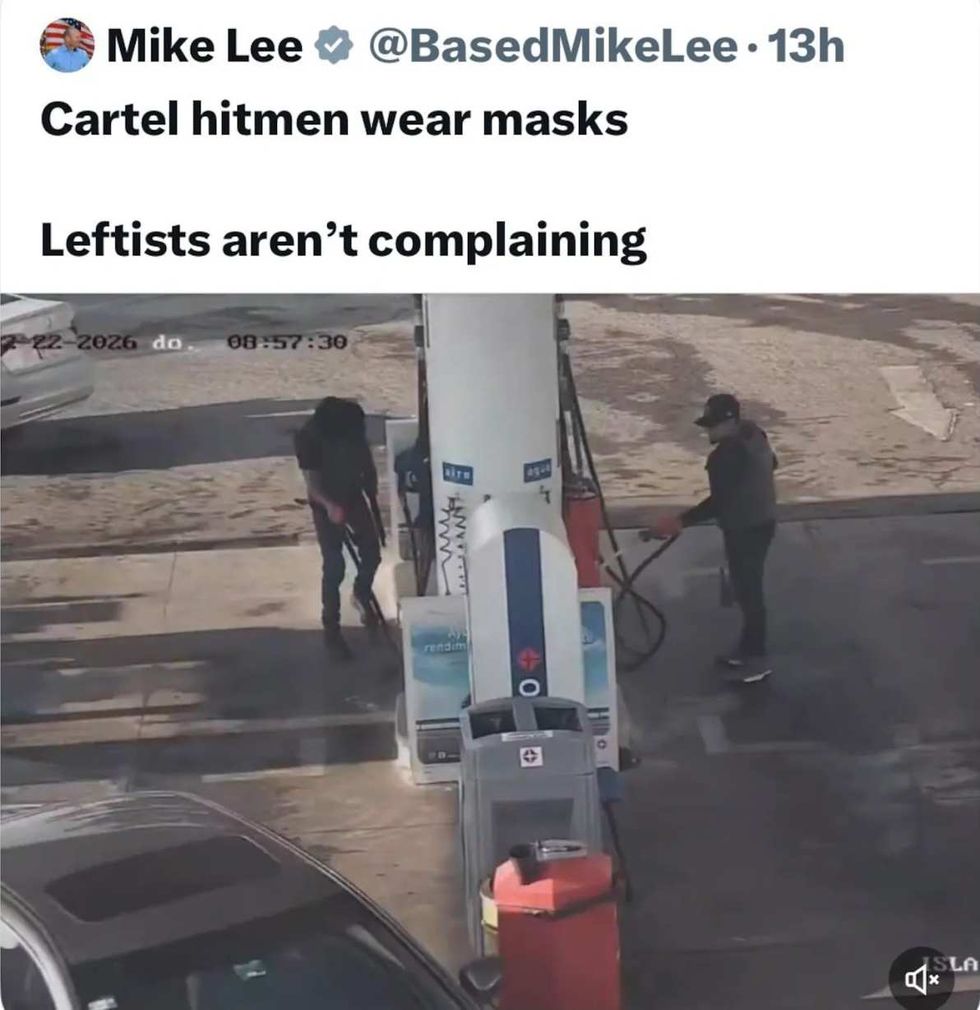 @BasedMikeLee/X
@BasedMikeLee/X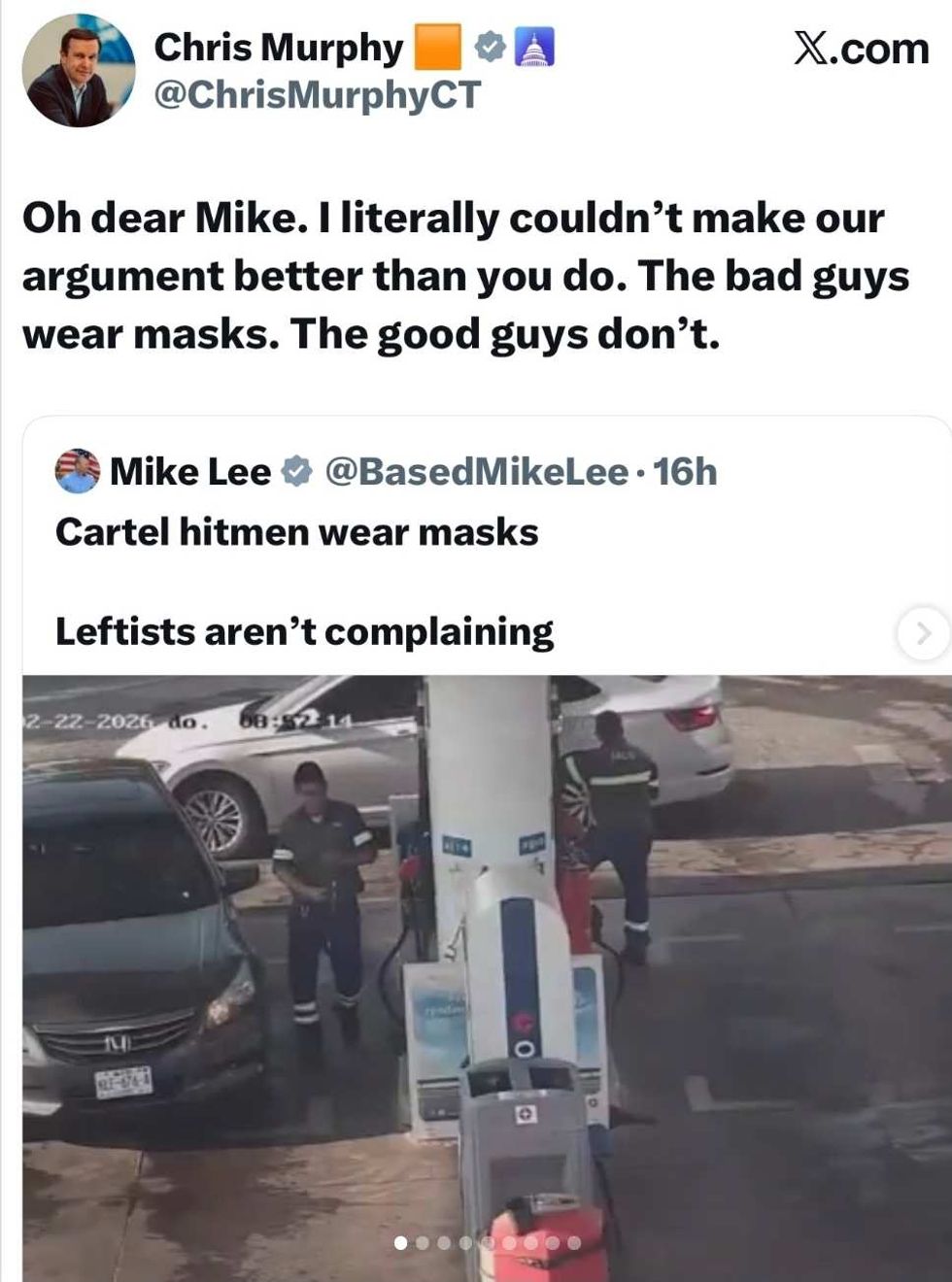 @ChrisMurphyCT/X
@ChrisMurphyCT/X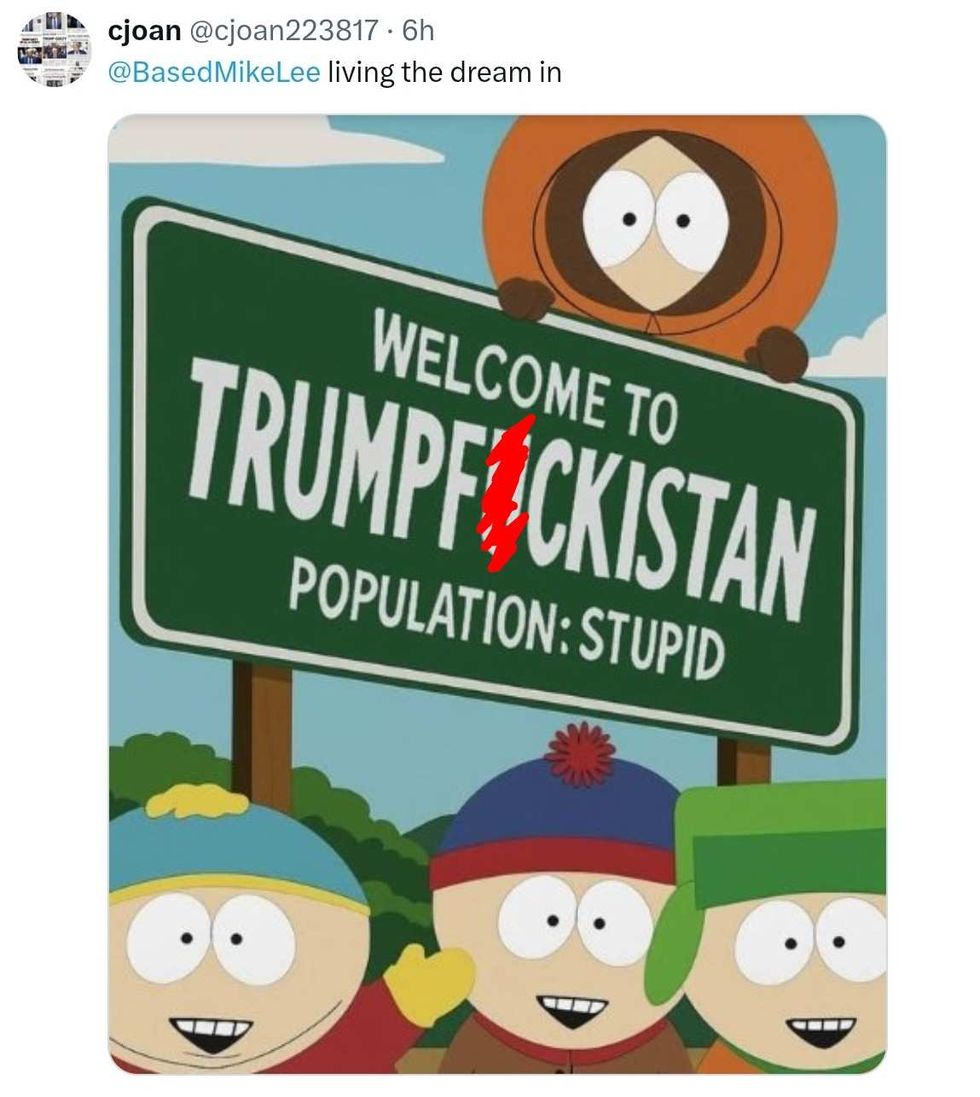 @cjoan223817
@cjoan223817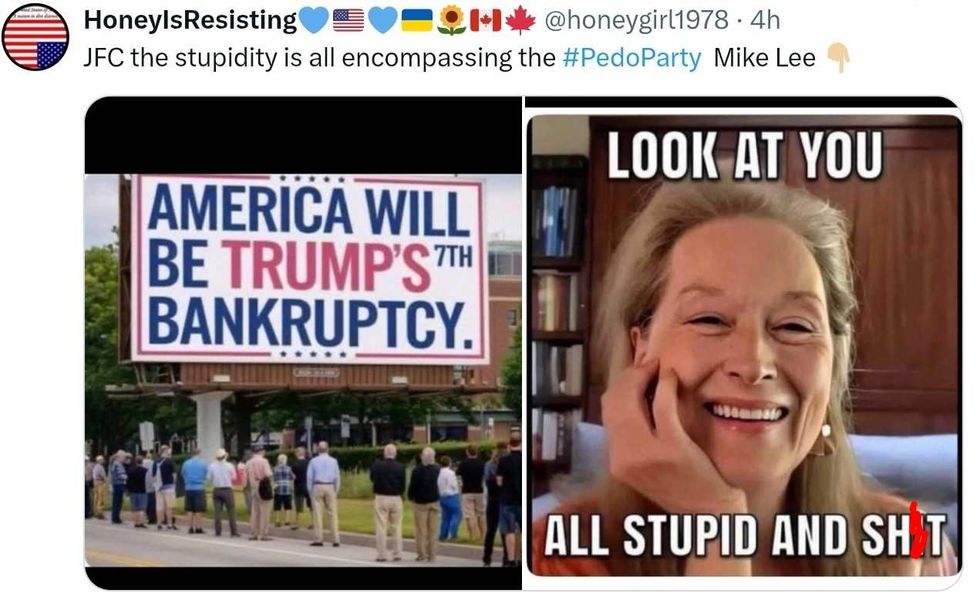

 @wideofthepost/X
@wideofthepost/X @mrmikebones/X
@mrmikebones/X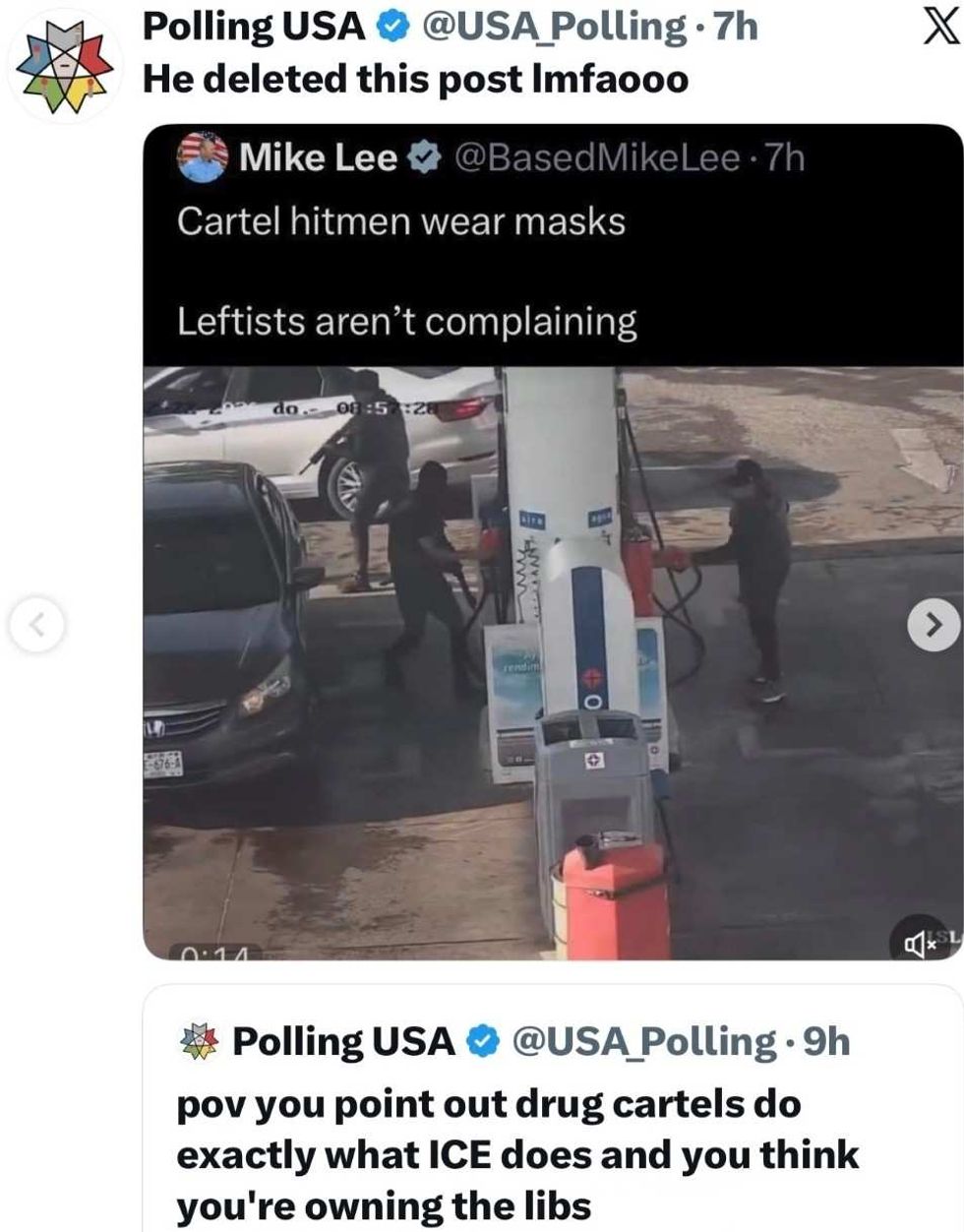 @USA_Polling/X
@USA_Polling/X